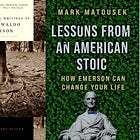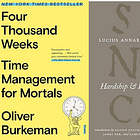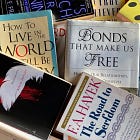Robin Williams Taught Us about Kindness
We all know the inner voice that speaks for kindness, compassion, and Love.
The late Dr. Kenneth Wapnick delivered a talk using a complex metaphysical framework; he explained why we choose to follow our ego’s voice despite all the trouble it makes for us and others.
A question came from the audience: I understand what you are pointing to, but I have no idea how to implement these ideas.
Ken responded, Be kind. Ken then paused.
The woman asking the question had a disappointed look that suggested she was thinking, That’s it. That’s all you got.
After a moment of silence, Ken added, We are so familiar with what we are thinking and feeling, but we rarely pause long enough to consider how the other person is feeling.
In his book Chatter: The Voice in Our Head, psychology professor and nueroscientist Ethan Kross dissects the inner narrator in our head. He writes,
Our verbal stream of thought is so industrious that according to one study we internally talk to ourselves at a rate equivalent to speaking four thousand words per minute out loud.
Sometimes this chatter takes the form of a rambling soliloquy; sometimes it’s a dialogue we have with ourselves. Sometimes it’s a compulsive rehashing of past events (rumination); sometimes it’s an angst-ridden imagining of future events (worry). Sometimes it’s a free-associative associative pinballing between negative feelings and ideas. Sometimes it’s a fixation on one specific unpleasant feeling or notion.
Naturally, this content leads to self-absorption. One study found that participants “spent a considerable amount of time thinking about themselves, their minds gravitating toward their own experiences, emotions, desires, and needs. The self-focused nature of the default state, after all, is one of its primary features.”
If Dr. Kross’s research is correct, we often have little bandwidth left to consider the feelings of others. We can become so consumed by our inner chatter that we think that’s all there is to our life experience.
We become more spiritually mature as we learn to discern—but not identify with— our disruptive inner chatter. Such work is at the heart of Mindset Shifts U.
We can’t control our thinking, but we can decide what thoughts are relevant for us. And what thoughts seem relevant depends on who we think we are. Later in 2025, our study of Ralph Waldo Emerson will assist us in exploring our true Nature.
As we finish our work with Seneca’s “On Anger,” notice that the more you choose not to take ownership of an angry thought, the quicker that thought vanishes. The more you own your angry thought by justifying it, the more it possesses you. We shadowbox with our thinking and blame the world for our foolishness.
As we will see in Saturday’s Session 3, Seneca makes us aware of how we, not others, are wrecking our experience of life. Seneca’s “On Anger” is timeless; if we are willing, he helps us see through our flimsy justifications.
Is being angry, Seneca asks how we want to spend our limited time? If you are ready to consider such questions, you won’t want to miss the 2025 sessions of Mindset Shifts U.
On January 25th we begin considering Seneca’s essay “On the Shortness of Life” and Oliver Burkeman’s book Four Thousand Weeks. Our Seneca and Burkeman study will last about 8 weeks. Burkeman and Seneca provide actionable and unique insights that help us make the most of our lifetime.
The following essay about Robin Williams and kindness was originally published at Intellectual Takeout.
In 2016, Kate Osher, a writer and attorney, told a story about tragedy and the kindness of a famous stranger.
Osher’s husband had committed suicide. Following his wishes, she was on a “travel quest” to scatter his ashes in places that had touched his life. Intending to fly with a Tupperware container of her husband’s ashes, she encountered a “belligerent” TSA agent who demanded that she discard the ashes. Osher’s reaction was strong, and her “hysterics” attracted a real cop who, after examining the death certificate for her late husband, used common sense and allowed her to pass through security, Tupperware in hand.
Still hysterical, she made her way through the throng of humanity at Los Angeles International Airport. No one seemed to care about her distress. Osher collected herself in an airport bar. There she sat, facing a wall, feeling alone with her grief.
Then, words of kindness came to her. Osher felt a gentle hand on her shoulder. She recognized the “soft voice” of Robin Williams, who was standing behind her, and said, “Miss, I just want to be sure you are OK. I see you are traveling alone, and I saw what happened, and I just really want to be sure you are OK.”
Robin Williams listened as Kate Osher shared her story. Williams’ voice got even softer as he spoke words we now know were born from a felt experience: “Addiction is a real bitch. Mental illness and depression are the mother of all bitches. I am so sorry for all the pain your husband was in. I’m so sorry for the pain you are in now. But it sounds like you have family and friends and love. And that tips the scale a bit, right?”
Walking her to her gate, Williams got her to laugh by “impersonating people we passed by.” With a “playful” and “not insulting” spirit, Williams made “fun of the TSA agents, especially the one who gave [her] such a hard time.”
True kindness is inclusive. Mistakes may call for correction, but Williams understood that they didn’t call for derision.
Now they were standing at her gate. Williams told her she “had a wonderful laugh” and “a beautiful smile” and they parted with a big hug. In Osher’s words, his compassion “sustained me during one of the most difficult moments of my life.”
This was another day in the kindness office for Robin Williams. Williams was a world-famous actor and comedian, but being kind and compassionate was his way of being in the world.
We don’t know how many people noticed Osher’s distress that day or how many felt an impulse to come to her aid but didn’t. We can imagine why strangers could’ve ignored an impulse to help. Travelers moving along to their flights may have thought, "I don’t want to be a busybody." She may not have welcomed my intervention. I never have the right words. I have my own troubles. I don’t know what her issue is; maybe she’s crazy.
“Kindness is love in action,” observes psychologist Robert Holden in his book Loveability. Robin Williams’ encounter with Kate Osher is a story of kindness, love, and hope. By his actions, he reminds us that in our nature is an impulse to connect with other people, despite our own personal suffering.
Adam Smith, the father of economics, is best known for being the author of An Inquiry into the Nature and Causes of the Wealth of Nations. In his less famous, but as important, book The Theory of Moral Sentiments, Smith begins with a bold observation about human nature:
No matter how selfish you think man is, it’s obvious that there are some principles in his nature that give him an interest in the welfare of others, and make their happiness necessary to him, even if he gets nothing from it but the pleasure of seeing it. [Note: Smith’s usage of English has been modernized by Jonathan Bennett of the Early Modern Texts project]
Smith writes, “We always have the strongest disposition to sympathize with the benevolent affections.” Thus, being kind increases our own happiness:
Generosity, humaneness, kindness, compassion, mutual friendship and esteem—all the social and benevolent affections—when expressed in someone’s face or behaviour, even towards people who aren’t specially connected with ourselves, please us on almost every occasion.
Smith observed that there is a voice within, a voice of “reason, principle, conscience” that helps us, on occasion, to place the happiness of others above our own. This inner voice, which Smith called the “impartial spectator,” teaches us that “we are but one of the multitude, in no respect better than any other.” Consequently, “we must always humble the arrogance of [our] self-love.”
Smith didn’t invoke religion to construct his theory of the “impartial spectator,” but many have other names for the “still, small voice.” No matter the name we give for this inner voice, we all know the voice that speaks for kindness, compassion, and Love. It notices our selfishness, offers gentle correction, and speaks of a better way to walk in the world.
In contrast to the “impartial spectator,” we also know the selfish internal voice well, which cares mostly about the ego’s “holy trinity” of “me, myself and I.” When we choose the guidance of our ego, impulses to be kind are dampened.
Smith and many religions and spiritual belief systems agree on this: Every human being is born with an “operating system” that allows us to choose between the voice that speaks for kindness and Love and the voice that speaks for our egoic selfishness.
Robin Williams taught that despite our own suffering, the voice that speaks for Love can never be extinguished. Does not everything—the quality of our own lives and the quality of our relationships—depend on which voice we listen to moment by moment?







Being kind is complicated but essential
Be with those who celebrate you as opposed to those who tolerate you.
This awakened me recently to dismiss the facade of a relationship with people I grew up with who never reciprocated the kindness I showed as I thought of them often doing nice things and sending articles related to their life or family etc and it feels better than the trying that I've been passively pursuing without reciprocity.
Luckily I'm wired to enjoy my solitude as much as I enjoy interaction with people.
I've been kind to strangers with kindness returned as well as venom, humans 🤷